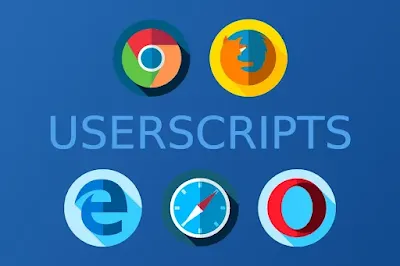Social Browser User Scripts
In the evolving landscape of the internet, where social platforms and web applications are integral to personal and professional lives, the notion of user customization has gained increasing relevance. One such powerful mechanism enabling this customization is the concept of user scripts—custom pieces of JavaScript code that modify the behavior or appearance of web pages on the client side. Specifically, in the context of social browsers, which are browsers optimized for social networking and interaction, user scripts can profoundly influence user experience, productivity, and accessibility.
What Are User Scripts?
User scripts, often referred to as userscripts, are scripts written in JavaScript that users can install in their web browsers to alter web page behavior. These scripts are typically run by browser extensions such as Greasemonkey, Tampermonkey, or Violentmonkey. Unlike traditional browser extensions, which are packaged and distributed through official stores, user scripts are more lightweight, flexible, and easy to modify. They operate at the level of individual web pages and can be tailored to meet very specific user needs.
The Role of User Scripts in Social Browsers
Social browsers are web browsers designed with enhanced support for social media platforms and services. These browsers may include features like integrated chat, social feed aggregation, and media sharing capabilities. In such browsers, user scripts become especially potent tools. They can be used to automate repetitive tasks, block annoying content, change interface layouts, and even integrate functionalities that the original website did not provide.
History and Evolution
The concept of user scripts traces back to the mid-2000s with the advent of Greasemonkey for Firefox. This tool allowed users to customize the behavior of websites they visited regularly. The idea quickly gained popularity, and similar tools were developed for other browsers. Over time, the community around user scripts grew, contributing thousands of scripts for various purposes, including social media enhancement. These scripts allowed users to hide sponsored content, automate messaging, or scrape data for personal use.
Common Use Cases
The application of user scripts in social browsers spans a broad range of functionalities:
- Ad Blocking: Removing unwanted advertisements and sponsored posts from social feeds.
- Interface Tweaks: Changing the layout or appearance of a social media platform to improve usability.
- Automation: Automating likes, shares, or message sending for more efficient interactions.
- Data Extraction: Scraping and exporting friend lists, messages, or post data.
- Dark Mode: Enforcing dark themes even on websites that do not support them natively.
- Content Filtering: Hiding posts that contain specific keywords or hashtags.
Benefits of User Scripts
User scripts offer several advantages, particularly in the realm of social media browsing:
- Customization: Users have complete control over how a website behaves and appears.
- Productivity: Scripts can help users focus by removing distractions.
- Accessibility: Enhancements for keyboard navigation or screen readers can be implemented.
- Privacy: Tracking scripts and intrusive content can be blocked or removed.
Challenges and Considerations
While user scripts offer flexibility, they come with their own set of challenges:
- Maintenance: Websites often update their code, breaking existing user scripts.
- Security: Malicious scripts can steal data or compromise security.
- Compatibility: Scripts may conflict with each other or with browser updates.
- Performance: Poorly written scripts can slow down the browser or cause crashes.
Creating Your Own User Script
Writing a user script typically involves a basic understanding of JavaScript and the Document Object Model (DOM). Here’s a general outline of how to create one:
- From Social Browser Setting , goto User Scripts Tab.
- Add New Script Code And Customize It
- You Can Select Auto Run or Show in menu or Run in window or sub iframes
- Test and debug your script on the target website.
Ethical and Legal Aspects
Using and distributing user scripts raises important ethical and legal considerations. While many scripts are designed for personal use, distributing scripts that modify the behavior of social platforms can violate terms of service. Additionally, scripts that scrape user data or automate actions like messaging can be used for spamming or surveillance, leading to misuse.
Community and Sharing
Despite potential risks, the user script community remains active and vibrant. Websites and forums allow users to share, review, and collaborate on scripts. Open-source development encourages transparency and improvement. These communities also serve as educational platforms where new users can learn about coding and customization.
Future of User Scripts in Social Browsing
The future of user scripts in social browsers will likely be shaped by technological and regulatory developments. On the one hand, increasing browser support for WebExtensions APIs and better scripting tools will make script creation more accessible. On the other hand, stricter enforcement of content security policies and terms of service may limit what scripts can do.
Additionally, the rise of AI and machine learning may lead to smarter user scripts that can adapt to changes in website structure or learn user behavior to automate complex tasks. Privacy-focused browsing and decentralized social networks could also open new frontiers for customization through scripting.
Conclusion
User scripts in social browsers represent a powerful intersection of customization, productivity, and user empowerment. They enable individuals to tailor their web experiences, overcome platform limitations, and enhance digital interactions. However, with this power comes responsibility—ethical use, security awareness, and respect for platform rules are essential. As the web continues to evolve, so too will the role of user scripts, shaping how users engage with the increasingly social digital world.
Whether you are a developer looking to fine-tune your social browsing experience or a casual user curious about customization, user scripts offer a gateway to a more personalized and efficient online environment. With ongoing community support and technological advancements, their relevance and impact are poised to grow for years to come.







